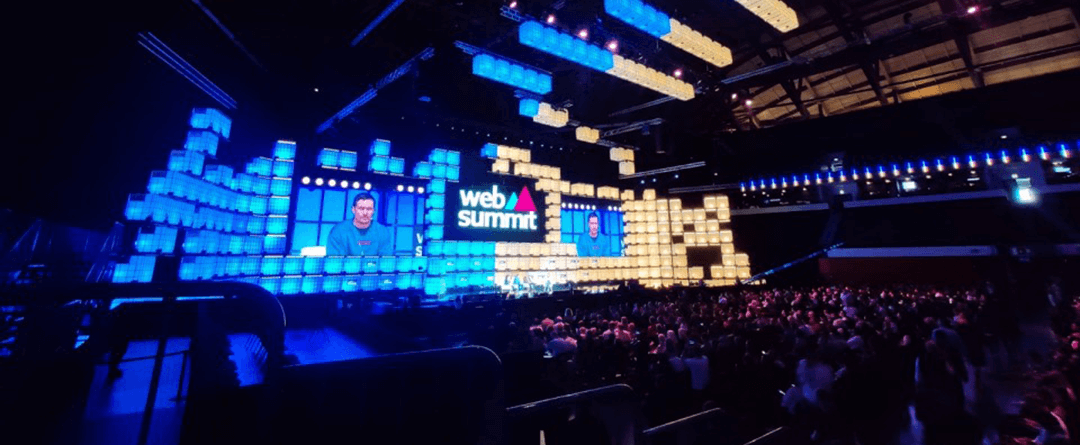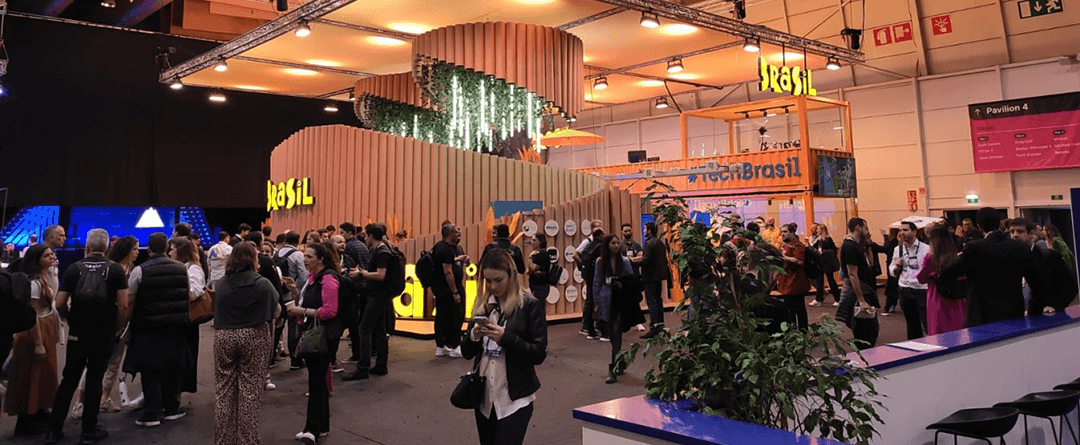
O Web Summit nasceu em 2009, na cidade de Dublin, Irlanda, com objetivo de conectar CEO’s, startups, investidores, mídia, políticos e criadores de conteúdos para falar sobre inovação e tendências. Desde 2016, o evento passou a acontecer na cidade de Lisboa, Portugal.
O Web Summit, sem dúvida nenhuma, se tornou um dos maiores e mais importantes eventos para o mercado digital, tecnologia e startups do mundo todo. Neste ano, o evento contou com mais de 71.000 pessoas, 160 países, 2.600 startups, 900 palestrantes e 1.000 investidores falando sobre o que existe de mais latente em nosso mercado e no mundo.
O Brasil foi representado por aproximadamente 70 empresas, sendo 57 startups e 13 empresas inovadoras através da ApexBrasil (Agência Brasileira de Promoção de Exportações e Investimentos), sem contar as empresas que foram de maneira independente, como a levva e a Advice by levva.

Durante todo o evento, inúmeros temas foram abordados, mas era nítido que existia um foco em alguns temas como:
- 1. Metaverso;
- 2. Games;
- 3. Inteligência Artificial;
- 4. Privacy;
- 5. ESG;
- 6. Cyber Security;
- 7. Health;
- 8. Blockchain;
- 9. Diversidade e inclusão;
- 10. Meio ambiente;
- 11. Energia renovável;
- … e muitos outros temas.
Metaverso: Sonho ou realidade?
Se falou muito sobre as limitações tecnológicas que ainda temos, para que esse tema evolua na velocidade em que você escuta sobre esse assunto. Para que as pessoas possam “experenciar” o metaverso que realmente irá “transformar a maneira que nós consumimos as coisas”, é preciso que hardware, acesso a redes de alta velocidade e que Web3 se tornem realidade.
Outro ponto importante: O metaverso não é apenas um mundo visto através de um óculos de realidade virtual, e sim como seus gadgets (smartwatchs, televisão, óculos, carro e afins) irão te proporcionar experiências imersivas através do seu contexto.
Games: let’s play!
O mercado de games é um objeto de desejo de praticamente todas as empresas, pois todos acreditam que será o futuro onde os jovens irão interagir e passar a maior parte do seu tempo. Já existem estudos que comprovam que jovens de 13 a 17 anos passam 40% mais tempo em ambientes de games do que outras formas de mídia, como redes sociais, streaming de música e vídeo.
As oportunidades estão em grandes jogos de mundo virtual, com menos jogadores, mas mais engajados. Esse modelo de produto vai oferecer mais oportunidade por permitir micro transações financeiras para compra de artigos especiais e experiências expansivas como eventos virtuais.
A tríade do momento: Inteligência Artificial, Dados e Privacy
Ficou claro que é uma preocupação global a utilização de dados de comportamento dos usuários através de IA e, também, como fica a privacidade dos usuários neste contexto. Visto que, para entregar melhores experiencias, é inevitável que exista o cruzamento de dados. Há também o desafio de como utilizar todos os dados que as aplicações são capazes de absorver.
Outro painel que tive o prazer de acompanhar foi da tecnologia de “Text to image”, onde uma IA gera uma image baseada em seu banco de dados de maneira automática. Isso irá revolucionar o mercado em alguns anos, pois você não irá precisar de nenhum software de edição de imagem para criar uma publicação ou arte. Com essa tecnologia disponível, o famoso “deep fake” fica acessível para qualquer pessoa, o que pode ser um grande problema e precisa ser discutido e regulamentado.
Health Tech: o bem necessário.
Muitas startups elevando o nível de diagnóstico através de aplicações, utilizando inteligência artificial e biotecnologia. Um exemplo, que chamou muita atenção, foi de uma Startup que promete para pessoas que tem medo de agulha ou sofreram alguma picada de inseto, aliviar essa sensação através de um dispositivo. Esse gadget é calibrado via aplicativo e aplicado sobre a pele, emite ondas, que aliviam a dor. (Su)real, né?
Blockchain e Crypto
Muitas startups apresentando blockchain para controle da cadeia de suprimentos, meios de pagamento, comunicação e open finance. Também estava muito presente a descentralização das finanças (DeFi) – que são aplicações e projetos em blockchain. Um dos painéis tratou sobre a primeira criptomoeda criada para estudantes. Por meio de um aplicativo, você pode aprender sobre Web3, educação financeira, além de pagamentos com taxas de transação muito baixas.
ESG (Environment, Social and Governance)
É nítido o abismo entre discurso e ações realmente realizadas entre as empresas que falam sobre ESG. Isso foi reforçado, inclusive, em uma palestra da Lisa Jackson, VP de Iniciativas Ambientais da Apple. Devemos cobrar, cada vez mais, das empresas nas quais nos relacionamos através do consumo suas ações de ESG. Outro ponto, extremamente relevante, dito por Brad Smith, VP da Microsoft, é que apenas a inovação pode nos ajudar a desacelerar o aquecimento global, mas que ainda assim, vai levar mais tempo do que imaginamos.
Volto do Web Summit com uma excelente percepção do contexto Brasil e sua maturidade tecnológica e digital. Estamos extremamente maduros e alinhados com o que as grandes Big Tech’s do mundo fazem e aplicam em todos os seus produtos e serviços.
Brian Collins questionou a cultura de MVP (Minimum Value Product), das quais todos as empresas perseguem há muitos anos como mindset de criação de produtos e soluções digitais. Ele indaga exatamente para acharmos um equilíbrio na construção de produtos digitais e focarmos em MLP (Minimal Loveble Product). Acredito que o equilíbrio é necessário, pois assim fugimos da “standarização” que se criou ao termos esse tipo de pensamento.
Fica aqui uma reflexão para você Brasileirinho(a) que tem síndrome de “vira-lata”.
O Brasil é terreno fértil para inovação e empreendedorismo.
Temos excelentes profissionais atuando em praticamente todas as camadas e não devemos nada para países ditos de “primeiro mundo”.
O Brasil precisa de pessoas que acreditem e, principalmente, que invistam seu conhecimento dentro de casa. Nosso mercado é gigante e nós temos muitas pessoas e empresas capacitadas para ajudar.
Bora fazer mais pelo nosso Brasilzão!



1 thought on “Insights Web Summit 2022: conheça os maiores hypes do evento”
Comments are closed.